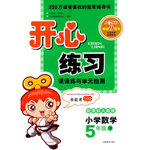题目内容
(题文)You’d better the test paper before handing it in.
A. go ahead B. go on C. go off D. go over
 D
【解析】
试题句意:你最好在交卷之前要仔细检査一下。A. go ahead 前进;B. go on继续;C. go off 离开; D. go over复习,检查。结合句意可知,答案为D。
D
【解析】
试题句意:你最好在交卷之前要仔细检査一下。A. go ahead 前进;B. go on继续;C. go off 离开; D. go over复习,检查。结合句意可知,答案为D。
 开心练习课课练与单元检测系列答案
开心练习课课练与单元检测系列答案 开心试卷期末冲刺100分系列答案
开心试卷期末冲刺100分系列答案(题文)If you don’t have dinner in the dinning hall, _________.
A. neither will I B. neither do I
C. so will I D. so do I
 A
【解析】
试题句意:如果你不在餐厅吃饭,我将也不去了。根据so/neither放在句首,表示“也/也不”,后面短句需要倒装;结合if引导条件状语从句时,主句需要使用一般将来时态,构成“主将从现”。故选A。
A
【解析】
试题句意:如果你不在餐厅吃饭,我将也不去了。根据so/neither放在句首,表示“也/也不”,后面短句需要倒装;结合if引导条件状语从句时,主句需要使用一般将来时态,构成“主将从现”。故选A。 —I’m sorry about yesterday.
—Don’t worry about it. It’s never just one person’s fault. We should think about______better next time.
A. how can we do it B. how we can do it
C. how can they do it D. how they can do it
 B
【解析】
句意:——昨天我很抱歉。——不用担心。它永远不只是一个人的错。我们应该考虑下一次如何做得更好。考查宾语从句。宾语从句需用陈述句语序,AC都是疑问句语序,可排除。It’s never just one person’s fault. 不只是一个人的错,意思是“我们大家都有责任”;根据句意语境,可知they不合句意,故选B。
B
【解析】
句意:——昨天我很抱歉。——不用担心。它永远不只是一个人的错。我们应该考虑下一次如何做得更好。考查宾语从句。宾语从句需用陈述句语序,AC都是疑问句语序,可排除。It’s never just one person’s fault. 不只是一个人的错,意思是“我们大家都有责任”;根据句意语境,可知they不合句意,故选B。 一Audrey Hepurn is one of the greatest actresses in the world! What do you think of her?
一 . Besides, she is also a great humanitarian.
A. Maybe you're right B. I'm afraid not
C. I can't agree more D. I can't agree with you
 C
【解析】
句意:——Audrey Hepurn是世界上最伟大的女演员之一!你觉得她怎么样?——我完全同意。除此之外,她也是一位伟大的人道主义者。考查情景交际。A. Maybe you're right可能你是对的;B. I'm afraid not恐怕不是;C. I can't agree more我完全同意;D. I can't agree with you我不同意你的看法。结合...
C
【解析】
句意:——Audrey Hepurn是世界上最伟大的女演员之一!你觉得她怎么样?——我完全同意。除此之外,她也是一位伟大的人道主义者。考查情景交际。A. Maybe you're right可能你是对的;B. I'm afraid not恐怕不是;C. I can't agree more我完全同意;D. I can't agree with you我不同意你的看法。结合... 一A number of visitors to Suzhou many times every year because of its beauty.
一That's quite right.
A. have been to B. has been to C. have gone to D. has gone to
 A
【解析】
句意:——由于美丽,每年有许多游客去苏州很多次。——相当正确。考查动词短语。a number of为量词短语,表示"许多……",中心词是这个短语所修饰的复数名词,所以作主语时,谓语动词用复数形式,所以排除B、D选项;have been to的意思是“过去到过而现在已经返回”,它强调“最近的经历”,have gone to意为“去了某地”,表示到了某地或正在去某地的途中;本...
A
【解析】
句意:——由于美丽,每年有许多游客去苏州很多次。——相当正确。考查动词短语。a number of为量词短语,表示"许多……",中心词是这个短语所修饰的复数名词,所以作主语时,谓语动词用复数形式,所以排除B、D选项;have been to的意思是“过去到过而现在已经返回”,它强调“最近的经历”,have gone to意为“去了某地”,表示到了某地或正在去某地的途中;本... 从方框中选择合适的句子抄写在横线上,有两项多余。
A: Could you tell me how you can speak English so well?
B: Well, I think listening more is very important.1.
A: Some people say watching English movies is good for English learners.
B.2.I have watched about 30 English movies since 2012, and that really helps a lot.
A:3..
B: Um, I think vocabulary is the most important. You can express yourself freely when you have a larger vocabulary.
A:4..
B: Reading. I have read many English books. That really helps with my English vocabulary.
A:5..
B: Never be afraid of making mistakes. The more you speak the language, the more freely you can express yourself. Enjoy losing face, then you can learn English well.
A. Certainly.
B. What’s the most important part of speaking English?
C. I always write down the new words on the notebook.
D. I listen to some English news, songs and other materials while I am on the way home.
E. What else do you think can help improve spoken English?
F. Exercises might be helpful.
G. But how can I enlarge my vocabulary (扩大词汇量)?
A. Certainly.
B. What’s the most important part of speaking English?
C. I always write down the new words on the notebook.
D. I listen to some English news, songs and other materials while I am on the way home.
E. What else do you think can help improve spoken English?
F. Exercises might be helpful.
G. But how can I enlarge my vocabulary (扩大词汇量)?
 1.D
2.A
3.E
4.G
5.B
【解析】
试题
1.
2.
3.
4.
5.
1.D
2.A
3.E
4.G
5.B
【解析】
试题
1.
2.
3.
4.
5. Have you ever been ill? When you are ill, you must be unhappy because your body becomes hot, and there are pains all over your body. You don’t want to work, and you stay in bed, feeling very sad.
What makes us ill? It is germs(细菌). Germs are everywhere. They are very small and you can’t see them with your eyes, but you can see them with a microscope. There could be hundreds of them on a very small thing.
Germs are always found in dirty water. When we look at dirty water under the microscope, we shall see them in it. So your father and your mother will not let you drink dirty water.
Germs aren’t found only in water. They are found in air and dust. If you cut your finger, if some of the dust from the floor goes into the cut (伤口), some of the germs would go into your finger. Your finger would become big and red, and you will have much pain in it. Sometimes the germs would go into all of your body, and you would have pain all over your body.
1.Which of the following is TRUE?
A. If things are very small, they are germs. B. Germs are only in dirty water.
C. Germs are everywhere around us.
2.What is a microscope used for?
A. Making very small things look much bigger.
B. Making very big things look much smaller.
C. Helping you read some newspapers.
3.Why don’t parents let us drink dirty water?
A. You haven’t looked at it carefully. B. Water can’t be drunk in this way.
C. There must be lots of germs in it.
4.What can’t we know from the passage?
A. Germs can be found both in water and in the air.
B. If your temperature is not OK, there must be germs in your body.
C. If your finger isn’t cut, there aren’t any germs on it.
5.What’s the main idea of the passage?
A. Germs may make us ill. B. Don’t drink dirty water
C. Take care of your fingers.
 1.C
2.A
3.C
4.C
5.A
【解析】
这篇短文给我们介绍的是关于细菌的一些知识,细菌在我们周围无处不在,它很小,我们用肉眼看不到,但是如果它进入了我们的身体,就会使我们生病、不舒服。
1.推理判断题。根据短文第一段中Germs are everywhere. They are very small and you can’t see them ...
1.C
2.A
3.C
4.C
5.A
【解析】
这篇短文给我们介绍的是关于细菌的一些知识,细菌在我们周围无处不在,它很小,我们用肉眼看不到,但是如果它进入了我们的身体,就会使我们生病、不舒服。
1.推理判断题。根据短文第一段中Germs are everywhere. They are very small and you can’t see them ... A TV Show—What Do You Think of TV?
Host: Judy, what do you think of TV?
Judy: I think it’s a bad and dangerous idol(偶像).
Host: How can you say such a thing, Judy? How can TV be dangerous? What do you mean by saying it’s an idol?
Judy: I mean that it sits there, in the center of our rooms. It is like a great idol and needs our attention. We usually spend time watching it. There’s no time to collect family news or talk together because we always want to see what’s on the box!
Host: OK. Let’s see what David thinks of TV.
David: I don’t agree with Judy. We can learn English, Japanese and other subjects on TV. How helpful that could be! We can get all kinds of news on TV.I think it also keeps the family together. We stay at home and watch TV together. And that saves money, too.
根据对话内容,选择最佳选项。
1.What is the TV talk show about?
A. Family. B. Idols. C. TV
2.How many people join the show except the host?
A. Two. B. Three. C. Four.
3.Which of the following are Judy’s ideas about TV?
①It always takes a long time for people to watch it.
②There’s no time for the family to talk with each other because of it.
③TV is helpful to people.
④TV needs our attention.
A. ①②③ B. ①②④ C. ②③④
4.David thinks TV is _________.
A. dangerous B. boring C. useful
5.What can we know from the dialogue?
A. Judy can’t stand TV. B. David doesn’t like TV. C. The host loves TV.
 1.C
2.A
3.B
4.C
5.A
【解析】
这篇短文主要是一个电视节目:主持人采访不同人们关于电视的看法。
1.根据文中Host: Judy, what do you think of TV?可知,这里谈论电视。故选C。
2.根据文中Host: Judy, what do you think of TV? Host: OK. Let’s see...
1.C
2.A
3.B
4.C
5.A
【解析】
这篇短文主要是一个电视节目:主持人采访不同人们关于电视的看法。
1.根据文中Host: Judy, what do you think of TV?可知,这里谈论电视。故选C。
2.根据文中Host: Judy, what do you think of TV? Host: OK. Let’s see... When we write an article, we can use “ ” to show sequence.
A. as a result B. for example C. in fact D. at first
 D
【解析】
句意:当我们写文章时,我们可以用“ ”来表示顺序。考查介词短语辨析题。as a result结果,表结果;for example例如,表举例;in fact事实上;at first首先,表顺序。句中sequence是名词,意思是“顺序”;根据句意语境,可知选D。
D
【解析】
句意:当我们写文章时,我们可以用“ ”来表示顺序。考查介词短语辨析题。as a result结果,表结果;for example例如,表举例;in fact事实上;at first首先,表顺序。句中sequence是名词,意思是“顺序”;根据句意语境,可知选D。 
